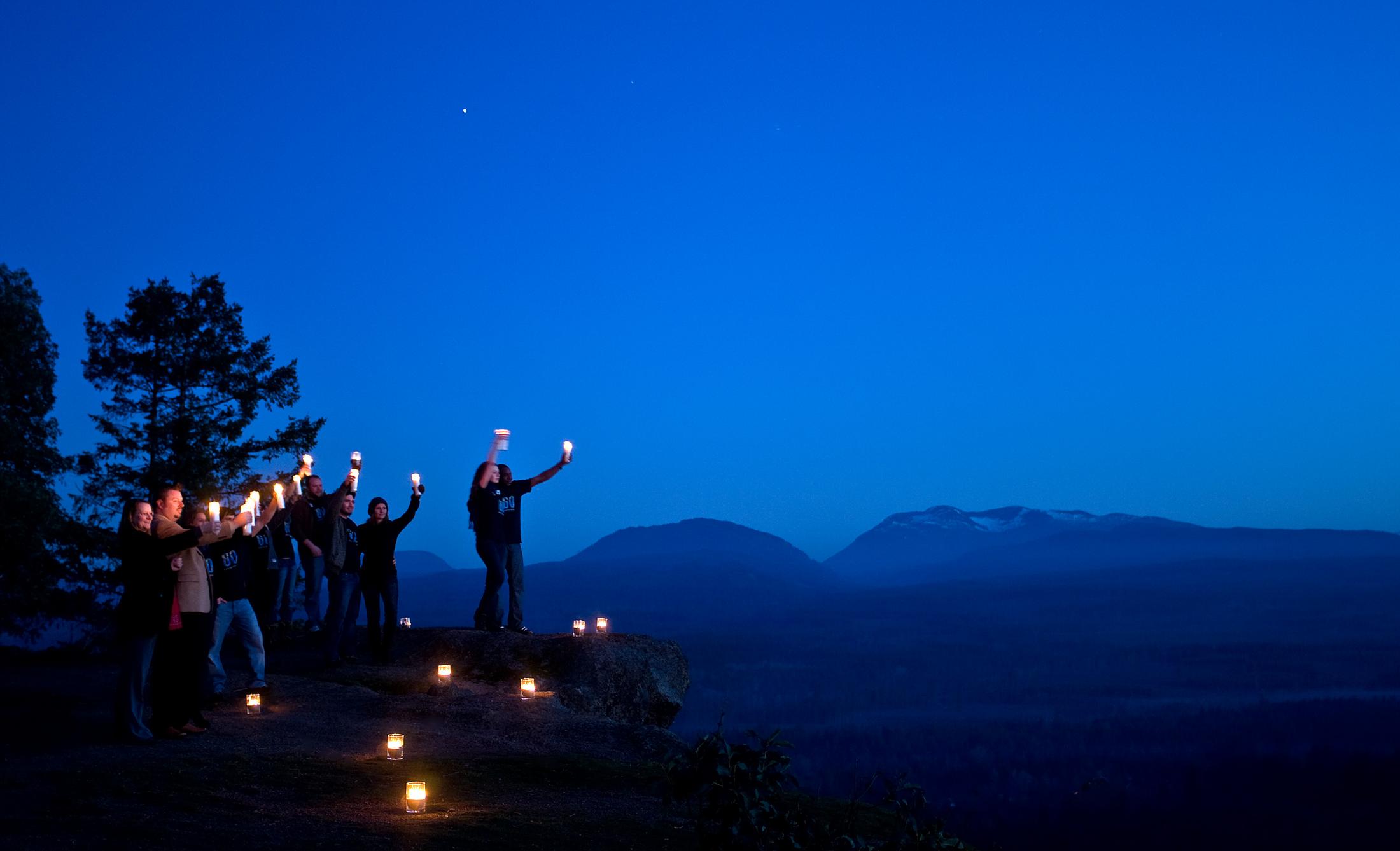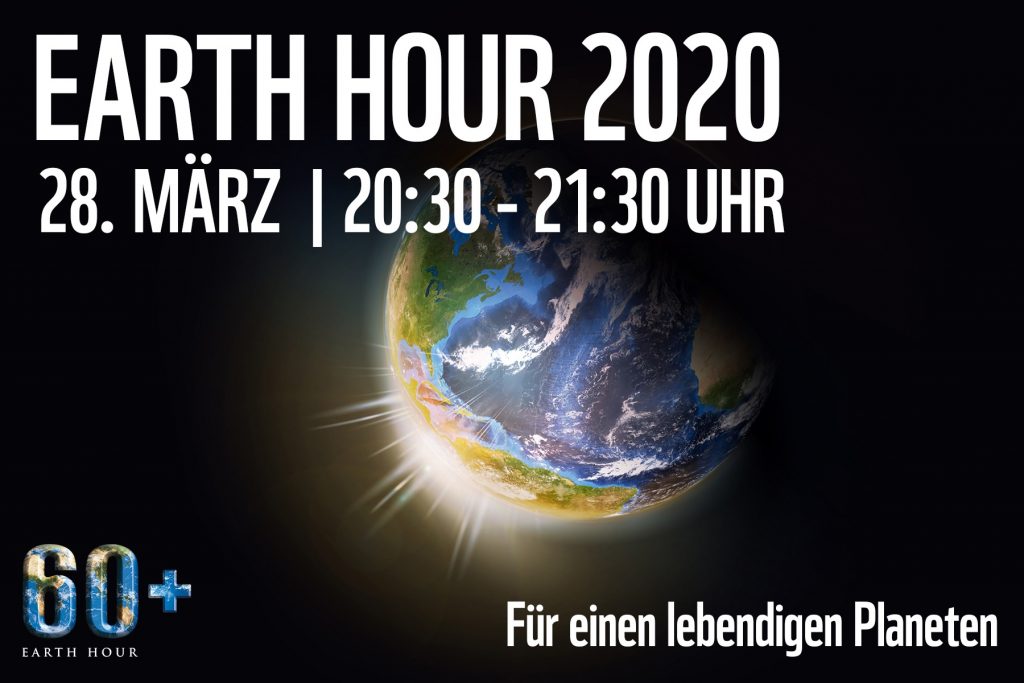Earth Hour 2020 – Time to act!
- minutes reading time
On 28th March from 8.30 p.m. to 9.30 p.m. is Earth Hour. Millions of people all over the world will consciously turn off the light for one hour on this day, setting an example for a living planet, climate protection and a sustainable future.

The world has been standing still for a few weeks now and things that were previously taken for granted by many have now become a rare commodity: Restaurant visits, coffee dates with friends, concert and movie nights, sweating together in the gym and always full supermarket shelves – including toilet paper. Our freedom and leisure time has been severely restricted by the rapid spread of the corona virus within a very short time. But maybe now is the right time to pause and reflect.
The WWF launched the Earth Hour back in 2007. The idea behind it: 60 minutes of darkness – so that others will get enlightend. A concept that currently hits the nail on the head: limiting oneself for others is our daily task at the moment. Thousands of cities and countless people are currently sitting at home and practising self-isolation to stop the spread of the virus. We are probably in the biggest quarantine situation ever in the world. And while in 2019 more than 180 countries on all continents took part in the «Hour of the Earth» and shrouded their most famous buildings in symbolic darkness, this year there could be many more.

Probably never before has the sense of community been greater and the helpfulness of the people more clearly felt than in the current situation. We all live on one planet and national borders really only exist in our heads. Therefore we are all collectively responsible for our planet. The Earth Hour campaign is not about «just» saving energy, but about setting a peaceful example for more environmental and climate protection. In this case, saving electricity is just a nice side effect. Above all, the campaign is intended to show that we have to take better care of our planet – hence the name «Earth Hour».
Science agrees: if mankind does not succeed in limiting global warming to 1.5°C, catastrophic consequences for mankind and nature are imminent. One in six species could become extinct. Forest fires are becoming more frequent, droughts and floods more severe. The climate crisis is – corona or not – still the greatest threat to our planet. And yet climate protection measures – such as the coal phase-out, which will come much too late with 2038 – are being delayed by the German government.
The Earth Hour is an appeal to policy leaders in all countries that it is time to act. Join in and be part of the Earth Hour 2020! Turn off the lights for one hour on 28th March at 20:30. And join millions of people around the world in sending a strong signal for a living planet. Make yourself comfortable by candlelight and enjoy the good feeling at home of being part of a global community action.
If not now, then when?

Comentarios (0)
Write the first comment